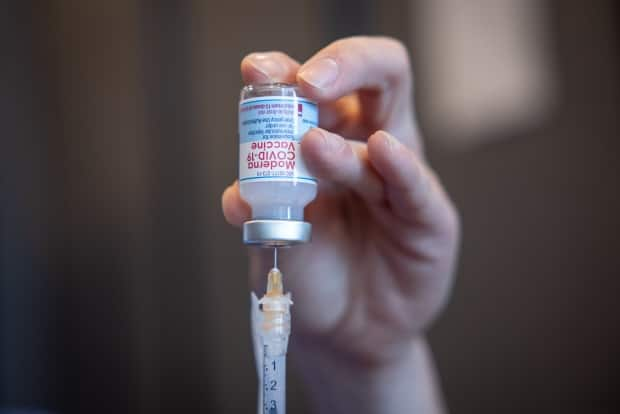Watson Lake grapples with COVID-19 infections, lower vaccination rate

The community of Watson Lake represents about 3.5 per cent of Yukon's total population, but as of Tuesday it had more than a third of the territory's active COVID-19 cases — and local leaders hope it's a wake-up call for more people to get vaccinated.
"You know, people see that it's continuing to infect people and people are starting to, again, realize that it's not going to go away," said Mayor Chris Irvin.
"We can't force people to get the vaccine. And hopefully people will take some time to educate themselves."
As of Tuesday afternoon, Yukon had 89 active cases of COVID-19 and more than half were in Whitehorse. Twenty-nine cases were in Watson Lake, and the remaining handful were scattered among several other rural communities. By Wednesday afternoon, the active case count had dropped to 77.
Speaking on Wednesday, Dr. Brendan Hanley, the territory's chief medical officer of health, said the Watson Lake cases mostly involve three household clusters. He also said those cases show that the virus is primarily targeting unvaccinated people.
Southeast Yukon, where Watson Lake is the largest community, has a lower rate of vaccination among adults than the territory as a whole. As of Monday, about 64 per cent of eligible adults in the southeast were fully vaccinated, compared to 80 per cent in the territory as a whole.

Asked why people in his community might be vaccine hesitant, Mayor Irvin struggled.
"Yeah, that's a pretty loaded question. It's pretty tough to answer that," he said.
Irvin cited a "lack of trust" among some people who question the speed at which vaccines were developed. But he also said it has not always been easy for some people to get their shots.
"We have a couple of smaller outlying communities, which actually makes it hard for individuals to make it to these clinics," Irvin said.
"It might be an excuse, [but] there is still sometimes missed opportunity for people that do want to get the vaccine."
'A lot of mistrust'
Stephen Charlie, chief of the Liard First Nation in Watson Lake, agrees and says more could be done in his community to get the word out, and make it easier for people to get their shots.
"There's just a lot of mistrust here and there's a lot of false information out there," he said.
Charlie says the leadership of his First Nation is getting a lot of criticism for how it's handling things, and for not "getting the message out." He thinks that's unfair, and that any blame should be directed at territorial officials.
"This is actually an initiative and totally the responsibility of the Yukon government," Charlie said.
He feels that the territorial government has not been giving local leaders enough information about COVID-19 infections, in a timely way. He also says there's a lack of resources in Watson Lake to help get more people vaccinated.
"I think a big opinion within the government is, 'well, they had the opportunity [to be vaccinated]. You can't force someone,'" Charlie says.
"But I think there's ways in which you could develop programs and initiatives, work with the First Nation government to better serve their membership."
Charlie says he'd like to see walk-in vaccination clinics in his community, as there has been in Whitehorse.
"Here, you need to make an appointment. You've got to go online," he says.
Another vaccination clinic is planned for Watson Lake on Friday. People are asked to phone the local health centre at 867-536-5255 to make an appointment.

